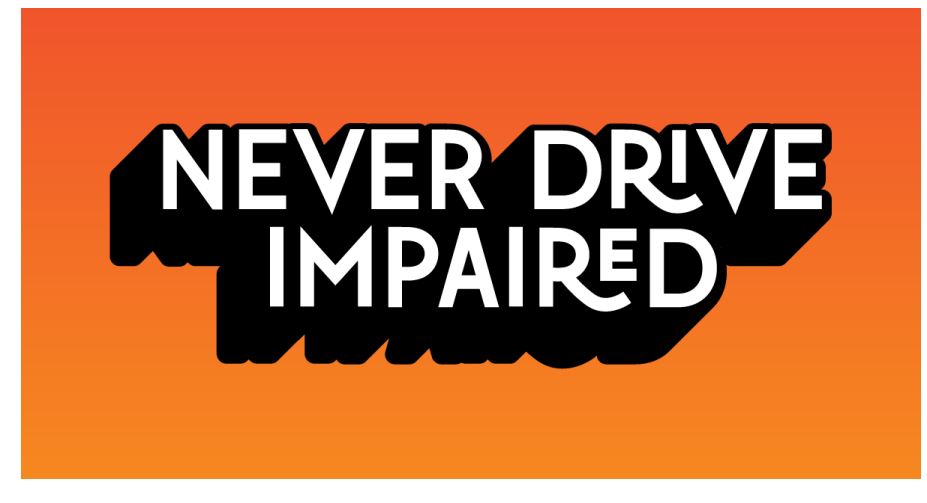
Florida Highway Patrol Kicks off Never Drive Impaired 2021 Campaign in partnership with the Florida Department of Transportation, Florida Sheriff’s Association, Florida Police Chiefs Association, Florida Restaurant & Lodging Association and AAA – The Auto Club Group.
The Florida Restaurant and Lodging Association is encouraging businesses to cultivate safe environments and ensure that patrons enjoy their experiences while traveling around Florida.
In 2020, there were 746 fatal crashes involving alcohol, drugs, or a combination of both in Florida – a decrease of more than 33% from 2019.
Preliminary data shows that in March of 2020, there were 27,416 crashes statewide with 1,400 serious bodily injuries with and 280 fatalities.
Preliminarily, alcohol was confirmed in 350 crashes in March 2020, a 24 percent decrease in alcohol confirmed crashes compared to 2015.
Individuals age 20-29 were the most reported age group in crashes with 1,241 drug-related crashes. The most prevalent drug in this age group was Marijuana followed by Other Controlled Substance.
Marijuana is the most prevalent drug in teenagers and young adults involved in crashes. Marijuana prevalence begins to decrease at 30 years of age or older.
Throughout the month of March, FHP and our state and local law enforcement partners will be focusing on keeping impaired drivers off the roads and making sure everyone buckles up to Arrive Alive.
Since 2014, the highest number of citations for seat belt violations for drivers and passengers have been given in March and May.
Driving impaired not only puts everyone on the roadway in danger, it can have serious legal and monetary consequences. Penalties for DUIs can include expensive fines, license revocation and jail time.
In March 2020, Florida law enforcement officers made more than 3,029 DUI arrests.
By Florida law:
- The legal drinking age in Florida is 21. Anyone under the age of 21 in possession of alcohol can be cited for a second-degree misdemeanor, which can lead to costly court fees, fines and other lasting consequences.
- It is illegal to sell alcohol to anyone under 21 or buy alcohol for anyone under 21
- Possession of an open alcoholic beverage container in a vehicle (in motion or stopped) by the driver and or the passenger(s) is a violation of Florida law.
- Enjoy vacationing in Florida responsibly by planning ahead. Plan for how you are getting home before any drinking begins if you plan to drink alcohol. Do not let an impaired friend drive, take the keys and save a life.
- Use a ride share service – it is much cheaper than a DUI arrest. The consequences of a DUI last a long time; a DUI conviction will remain on your driving record for 75 years.
- Remember, a person’s judgment is the first thing affected after drinking an alcoholic beverage; impairment begins with the first drink.
MARIJUANA IMPAIRED DRIVING
Driving high is driving impaired. When you are under the influence of marijuana and choose to drive, your decision can affect countless people. You can hurt yourself. You can hurt others. And a DUI arrest can lead to serious legal and monetary consequences.
When you’re under the influence of marijuana, do not get behind the wheel. The five signs of impairment are:
- A slowed reaction time;
- Limited short-term memory functions;
- Decreased hand-eye coordination;
- Weakened concentration; and
- Difficulty perceiving time and distance.
Unlike alcohol, there is no specific impairment limit with marijuana. Marijuana affects everyone differently and can remain in a person’s system much longer than alcohol.
Along with affecting motor skills, impairment can also cause drowsiness, an inability to react in simple situations and a false sense of alertness and self-confidence.
Driving while impaired by drugs is illegal and subject to the same penalties as driving while impaired by alcohol. Penalties for DUIs can include expensive fines, license revocation and jail time. Convictions can remain on your record for 75 years.
There are many drugs that can affect a person’s ability to safely operate a vehicle, including marijuana. If you are taking medication, check the label for warnings prior to driving. If you are not sure if it is safe to take the drug and drive, ask a doctor about any side effects.
The Florida Highway Patrol and law enforcement officers statewide are trained to spot the signs of impaired driving. They are constantly monitoring roadways to keep everyone safe on the Florida roads.





































